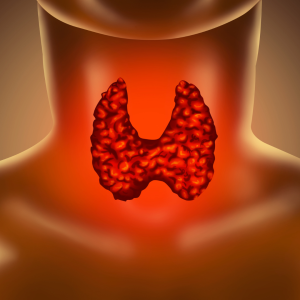 When we think of fertility, we often notice that there is more emphasis placed on investigating women rather than men. Over the past few decades however, there has been growing concern over the decline in male fertility worldwide. This decline underscores the importance of fertility treatment for men as well as women. When men come to us for fertility support, it is important to get full investigations done to assess their fertility. In this blog, we outline the most important tests for men to undergo. We also take a look at other essential factors that are crucial for male fertility.
When we think of fertility, we often notice that there is more emphasis placed on investigating women rather than men. Over the past few decades however, there has been growing concern over the decline in male fertility worldwide. This decline underscores the importance of fertility treatment for men as well as women. When men come to us for fertility support, it is important to get full investigations done to assess their fertility. In this blog, we outline the most important tests for men to undergo. We also take a look at other essential factors that are crucial for male fertility.
1. Sperm test
A sperm test, also called a semen analysis, provides valuable information about reproductive health. While it takes an egg and a sperm to make a baby, there are actually millions of sperm needed to reach the egg. A good amount of properly shaped and fast-swimming sperm is essential for conception. A standard sperm test will look at the sperm count, motility (movement) and morphology (shape) of the sperm. It is also important to check if the sperm has any DNA damage. Research indicates that DNA damage in sperm increases with age and this lowers the chance of conception and reduces embryo quality and pregnancy rates [1]. Read more about the importance of a sperm analysis here.
2. Hormone Testing
Hormones play a vital role not only in women but also in men for sperm production. FSH (follicle-stimulating hormone) stimulates the production of sperm within the testes and works in conjunction with LH (luteinizing hormone). Together they regulate the production of testosterone and ensure proper functioning of the testes. Finally, knowing a man’s testosterone level is important for sperm production and overall fertility.
 3. Thyroid Function
3. Thyroid Function
Thyroid, a butterfly-shaped gland at the front of the neck, releases important hormones (T4 Thyroxin and T3 Triiodothyronine) involved in metabolism, growth, and development. An overactive or underachieving thyroid can influence testicular function, leading to a reduction in semen volume, motility, and morphology (normal form) [2].
4. Zinc
Zinc is an important mineral for overall reproductive health and sperm production. It triggers a vital “zinc spark” during fertilisation. When a sperm meets an egg, sparks literally fly! An explosion of zinc fireworks occurs when a human egg is activated by a sperm enzyme. The intensity of the spark, indicates the egg’s potential to develop into a healthy embryo and so zinc levels plays a crucial role in foetal and placental development [3].
5. Managing Stress
Stress affects our nervous system, particularly the HPA axis. This is a complex system in our body that helps regulate how we respond to stress and maintain our wellbeing. The HPA axis plays a significant role in fertility in both men and women. It can impede the reproductive system and sperm production. While avoiding stress entirely is impossible, adopting effective stress management techniques can minimise its impact.
 6. Do you sleep well?
6. Do you sleep well?
Adequate sleep is vital for the body’s repair processes. A study has found a 10-15% reduction in testosterone when men get less than 5 hours sleep a night for a week [4]. Testosterone is also a hormone that naturally declines with age.
7. Have you quit smoking, vaping, and reduced your alcohol intake?
Smoking, vaping and excessive alcohol consumption can create oxidative stress and and can negatively affect hormone levels. This will lead to impaired sperm production. Reducing or eliminating these substances is essential for improving sperm health.
To read more about the effect of smoking on fertility, read our blog here.
8. Medication awareness
Certain medications can affect sperm quality. Please discuss prescribed medications with your doctor so that their potential impact on sperm health is thoroughly evaluated.
9. Prioritise Your Health: A Holistic Approach
Remember, our body functions as a single unit, with all systems interconnected. Fertility is not solely dependent on reproductive organs and hormones. Factors like gut health, cardiovascular well-being, metabolism, and overall lifestyle play vital roles in sperm health. Taking care of your overall health is fundamental to optimising fertility. Read our blog about improving your sperm with food here.
This is where Chinese medicine (acupuncture and/or herbal medicine) can play an important role. We work holistically, looking at any health concerns or pre-existing conditions and address them proactively so that we can positively influence sperm quality.
How can I make an appointment to work on my fertility?
At Natural Solutions Acupuncture we have a keen interest in supporting couples with their fertility and this includes male fertility. If you would like to make an appointment you can do so here or if you have any questions please give us a call on 0414 067 874.
References:
[1] Petersen CG, Mauri AL, Vagnini LD, Renzi A, Petersen B, Mattila M, Comar V, Ricci J, Dieamant F, Oliveira JBA, Baruffi RLR, Franco JG Jr. The effects of male age on sperm DNA damage: an evaluation of 2,178 semen samples. JBRA Assist Reprod. 2018 Nov 1;22(4):323-330. doi: 10.5935/1518-0557.20180047. PMID: 30106542; PMCID: PMC6210622.
[2] La Vignera S, Vita R. Thyroid dysfunction and semen quality. Int J Immunopathol Pharmacol. 2018 Jan-Dec;32:2058738418775241. doi: 10.1177/2058738418775241. PMID: 29737216; PMCID: PMC5946587.
[3] Tian X, Anthony K, Neuberger T, Diaz FJ. Preconception zinc deficiency disrupts postimplantation fetal and placental development in mice. Biol Reprod. 2014 Apr 25;90(4):83. doi: 10.1095/biolreprod.113.113910. PMID: 24599289; PMCID: PMC4076385.
[4] Leproult R, Van Cauter E. Effect of 1 week of sleep restriction on testosterone levels in young healthy men. JAMA. 2011 Jun 1;305(21):2173-4. doi: 10.1001/jama.2011.710. PMID: 21632481; PMCID: PMC4445839.

